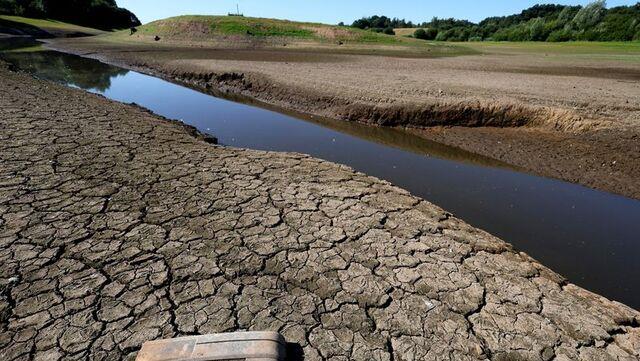World leaders will launch a new alliance to boost drought resilience on Monday, November 7, 2022, at the 27th Session of the Conference of the Parties (COP27) to the United Nations Framework Convention on Climate Change (UNFCCC) holding in Sharm el-Sheikh, Egypt.

The high-level launch event, jointly convened by Senegal and Spain, titled “International Drought Resilience Alliance”, will take place from 17:00-18:00hrs local time.
World leaders recognise the urgent need to shift drought management approaches from the current emergency response to resilience. The Alliance is envisioned as a collaborative platform to rally political momentum and trigger actions that support countries, cities, and communities to enable this shift and significantly reduce their vulnerability, impact and exposure to extreme drought.
President of the Government of Spain, Pedro Sánchez Pérez-Castejón, announced at the 77th session of the United Nations General Assembly in September 2022 that creating the alliance is “a specific solution for the United Nations” to the impacts of climate change.
“Together with Senegal, we will support the creation of an ‘International Alliance for Drought Resilience’ to promote innovation, technology transfer and the mobilisation of resources to combat drought in countries exposed to this threat,” President Sánchez said.
President Macky Sall of Senegal said: “When the State is in danger, when it is destabilised in any way, the foundations of community fracture making way for chaos. We all – governments, citizens and civil society – have an obligation not to saw off the branch we are sitting on.”
“I am thinking of the environmental peril, in particular global warming, drought and desertification, and weather-related natural disasters. The State of the Climate in Africa 2020 estimates that by 2030, 118 million Africans will be at risk of extreme poverty due to a combination of sea level rise, flooding, drought and other related phenomena,” President Sall added.
According to the latest Drought in Numbers report compiled by the UN Convention to Combat Desertification (UNCCD), droughts have increased in frequency by 29 percent since 2000, with some 55 million people affected every year. Recent droughts in Australia, Europe, western United States, Chile, the Horn and Southern Africa, show that no country is immune to drought.
The Intergovernmental Panel on Climate Change (IPCC) projects that droughts will be more frequent, severe and last longer. Climate change bears much of the responsibility, but so does how we manage our land and water resources. The IPCC estimates that three out of every four people in the world will be living in drier, water-scare conditions by 2050.
Helping countries, cities and communities to build drought resilience presents an opportunity to significantly reduce the high social and economic costs. This includes the loss of life, livelihoods and biological diversity, water and food insecurity, and disruption in the energy, transportation and tourism sectors, as well as forced migration, displacement, and conflicts over scarce resources.
